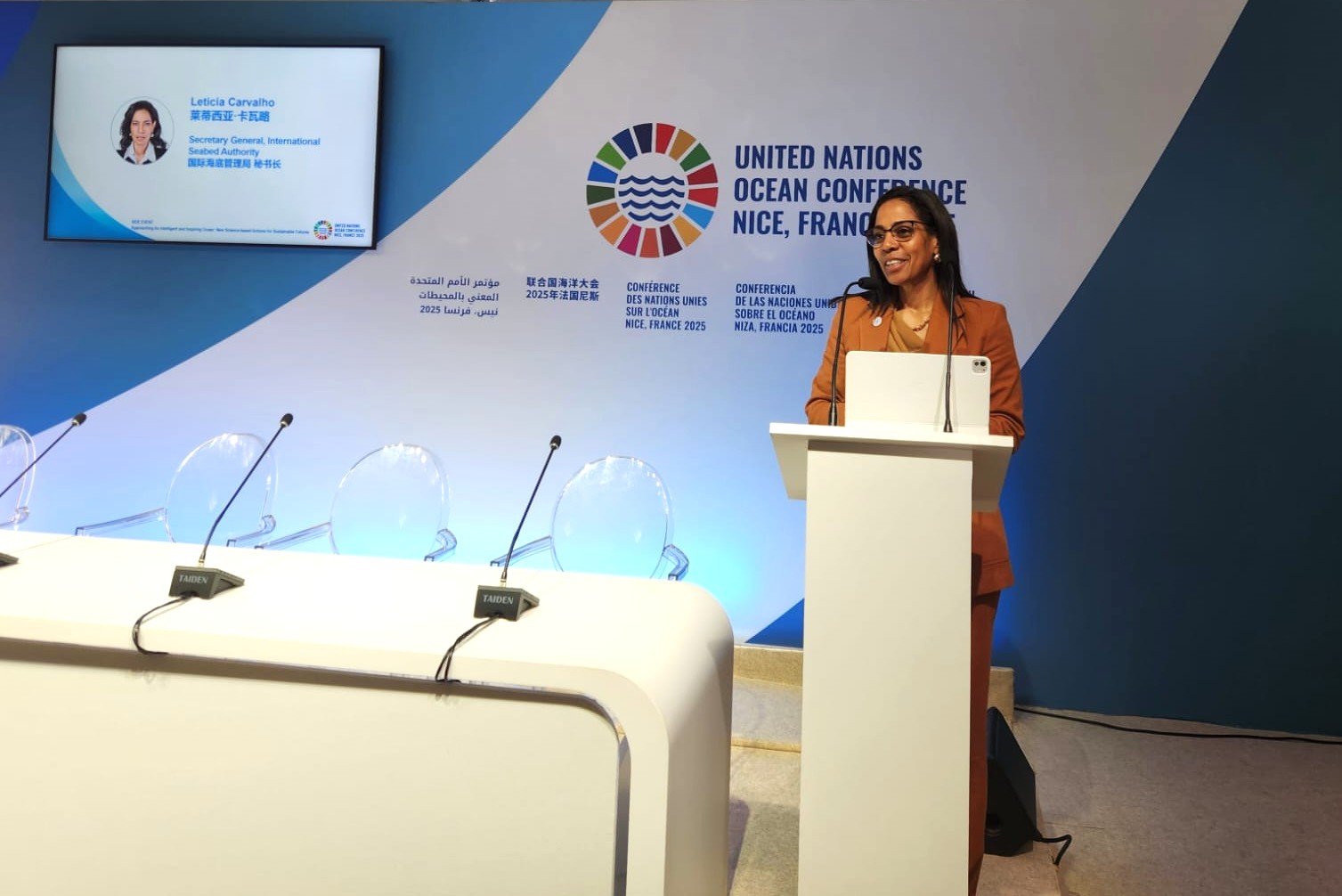Enhancing the conservation and sustainable use of oceans and their resources by implementing international law as reflected in the UNCLOS
Excellencies,
distinguished guests,
ladies and gentlemen,
It is an honour to address you today at the third UN Ocean Conference.
We are all aware that this is a pivotal moment for the ocean and for the future of our planet.
Dear colleagues,
In the plenary, in the panels, and in my bilateral meetings,
I have heard again and again the same message loud and clear: The challenges we face today demand multilateralism guided by clear roadmaps.
In the ocean governance space, this means the pursuit of evidence-based, collective, and fair decision-making.
Multilateralism remains our most powerful tool to achieve prosperity.
Though we will differ on approaches, the spirit of multilateralism can bring us together around shared values and ambitions.
Only through this cooperation, we can deliver meaningful outcomes for people and planet — especially in areas beyond national jurisdiction, where no single State bears sovereignty, but all share responsibility.
Friends,
Forty years after its adoption, the United Nations Convention on the Law of the Sea—UNCLOS—remains the foundation of our international legal order for the oceans.
It offers not only legal stability and universality, but also a visionary regime that has proven adaptable, inclusive, and effective.
Nowhere is this more evident than in Part XI of the Convention.
Together with the 1994 Implementing Agreement, the Convention enshrines the seabed beyond national jurisdiction—the Area—as the common heritage of humankind, representing 54% of the ocean, and entrusts its stewardship to the International Seabed Authority.
This principle is not aspirational—it is binding international law.
It prohibits claims of sovereignty or rights over the Area or its resources.
It prohibits exploitation outside of the agreed multilateral framework, and ensures that benefits must be shared equitably, with ALL, particularly with developing States, including those that are landlocked.
The ISA, as the sole international body with the mandate to organize and control mineral-related activities in the Area, on behalf of all States, is central to upholding this principle.
In this spirit, Parties are working hard to deliver regulations in line with their agreed 2023 roadmap.
Regulations that, to the best of our ability, uphold our common principles enshrined in the Charter of the United Nations ensure sustainability anchored in scientific knowledge are conducted within strict environmental, financial, and technical standards framed under the precautionary principle and that bring together the legitimate interests of all humankind for a common good.
We already have key instruments in place, including rigorous impact assessments and the establishment of regional environmental management plans, which designate areas protected from future mining activities.
In fact, over 1.9 million square kilometers of the seabed in the Clarion-Clipperton Zone are currently protected from any future exploitation.
The work of ISA also embodies the commitment to equity. Regulations must include provisions and mechanisms for the equitable sharing of financial and other economic benefits derived from activities in the Area.
Capacity-building and technology transfer are not optional ᅳ they are legal obligations under UNCLOS. Every exploration contract includes mandatory training for nationals of developing countries. A thousand of such placements have been facilitated.
Through its Marine Scientific Research Action Plan, adopted by all its 169 member States, the Authority is expanding research, technology transfer, and open access to deep-sea data.
These contributions represent essential building blocks for the effective achievement of SDG 14.
We also collaborate with other institutions and contribute to other international frameworks, like the Kunming-Montreal Global Biodiversity Framework. Synergies with our sister Agreement, BBNJ, will be crucial to reinforce UNCLOS.
We must ensure complementarity, in line with the– ‘not undermine’ principle.
Ladies and Gentlemen,
Effective ocean governance is not an abstract concept—it is a necessity.
And UNCLOS provides the legal certainty and institutional framework for all States to work together, in good faith towards common cause.
This week, in no uncertain terms, I made this point in my Economist article, – the Deep Sea Needs Rules.
You would also have heard this sentiment echoed many times over the last few days by dignitaries, including by President Lula of Brazil, and the UN Secretary- General, who stated that the deep seabed can not become the Wild West.
As we conclude UNOC3, I urge you to recognize the transformative ptential of the institutions created under UNCLOS.
And as we explore the potential of one of the planet’s final frontiers, let us work together to reach higher, NO, let me say DEEPER, goals.
Let us ensure that we do not make the mistakes of the past.
Please join us in championing the collective stewardship of the deep seabed and its resources.
I therefore take the opportunity to urge all members of the ISA family to come to Kingston in our next Council meeting in July.
Come with values rooted in pragmatism, to deliver a solid, strong, and science-based regulatory regime.
One that will ensure effective governance of mineral resources in the deep sea and protect the marine environment.
I thank you.


